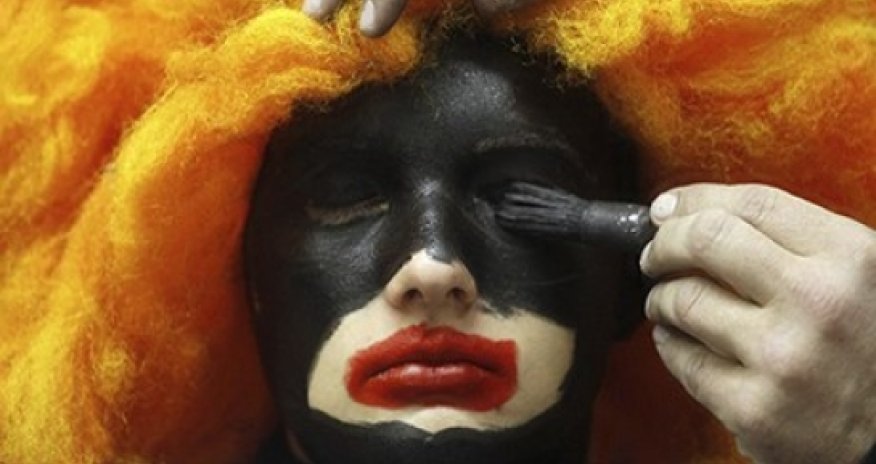Dutch relic of Christmas past prompts racism row

As the Netherlands gears up for its annual Saint Nicholas celebration on Friday, the festivities are in danger of being overshadowed by a growing row over his helper and clown, "Black Pete".While families exchange presents and eat cakes to welcome Santa Claus's slimmer and more sober ancestor, criticism of the crude depictions of his sidekick, known locally as Zwarte Piet, has reached the United Nations.The clown is usually portrayed by a white person in blackface, who goes around offering sweets to good children and, according to legend, threatens to collect naughty ones in a sack to be taken to Zwarte Piet's home in Spain. But he is increasingly reviled by critics as a racist relic of Christmases past.Momentum has been growing against the custom, in part thanks to campaigners such as Quinsy Gario, a poet and activist born in the former Dutch colony of Curaçao who was arrested two years ago for wearing a T-shirt with the slogan "Black Pete is racism" at a Saint Nicholas parade in the city of Dordrecht. Gario's message is that the tradition perpetuates crude stereotypes.In October a United Nations adviser on minority rights described Black Pete as "a throwback to slavery". Verene Shepherd, a Jamaican academic who chairs the UN working group of experts on people of African descent, said on Dutch TV: "As a black person, I feel that if I were living in the Netherlands, I would object to it."Shepherd's intervention prompted an indignant reaction on Facebook from Black Pete's defenders. A Facebook "Pietitie" (Pete-ition) defending the custom earned more than two million likes, a startling number for a country of just 17 million. The populist anti-Islam politician Geert Wilders said it would be better to scrap the UN than Black Pete. Both the prime minister, Mark Rutte, and the mayor of Amsterdam, Eberhard van der Laan, offered carefully worded statements of support.The criticisms have provoked debate about identity and image within the Netherlands, which prides itself on tolerance and social harmony. Peter Jan Margry, a researcher at the Meertens Institute in Amsterdam, said: "For too long, we have seen ourselves as a less racist society, and never thought that the comical Black Pete figure could be offensive."Most Dutch remain stubbornly attached to the custom. An October opinion poll revealed that 91% of Dutch did not want to change the tradition to placate the country's ethnic minorities.In Breda, just north of the Belgian border, Black Pete features as dolls in shop windows, as gingerbread cakes, and in parades alongside Saint Nicholas. Most of the locals say it is an innocent family tradition, hammered by political correctness. "I don't see why this is offensive: he's friendly and fun," says Dirk Bakker, a taxi driver. Sophie de Vries, a café barrista, claims the criticism misses the point: "Some say he is a black man, but I was always told that his face was simply dirty because he climbed down the chimney," she says. Even Edgar Pelkmans, a student from the former Dutch colony of Surinam, said the practice was harmless: "I'm not that offended: he's like one of Santa's elves."However, the tone appears to have changed. In the recent Amsterdam parade for Saint Nicholas, Black Pete's big hoop earrings were deliberately sacrificed, and there were even portrayals of him in colours other than black. "There is a more pronounced sense of cultural embarrassment now," says James Kennedy, an American historian at the University of Amsterdam, who sees this as a turning point. "Although many Dutch see themselves as beyond racism, and insist no offence is intended, there is a definite trend against Black Pete. While he may still be here in 10 years, I don't think he will still be around 20 years from now."(theguardian.com)ANN.Az
Similar news
Similar news




































 Photo
Photo 



 Video
Video 

